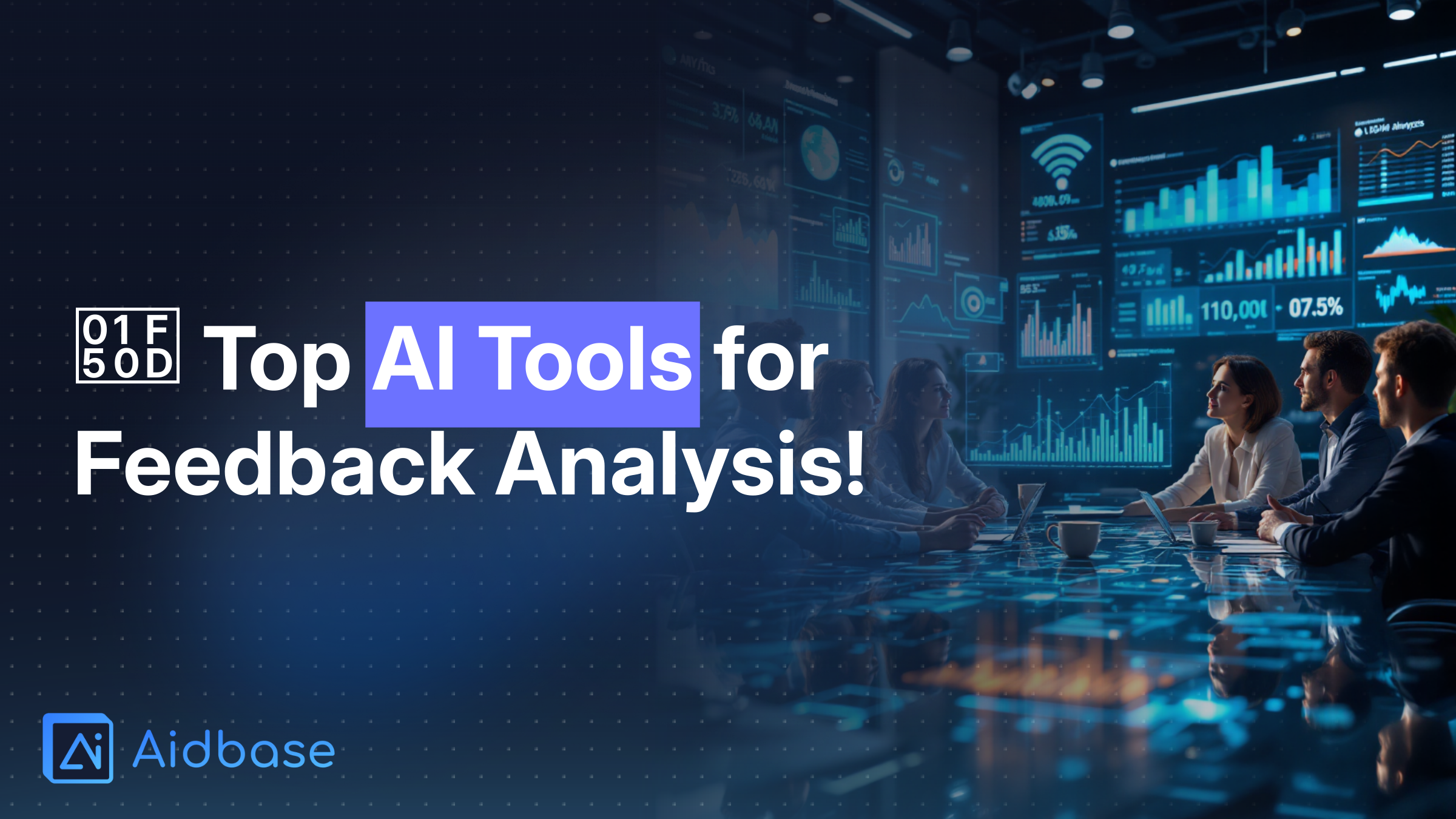In the modern marketplace, customer feedback is essential for business grow...

The modern marketplace is driven by customer insights. Businesses today understand that every review, comment, or survey response is an opportunity to learn, grow, and adjust. With rapid advancements in AI, tools designed to analyze customer feedback now harness capabilities like sentiment analysis, emotion detection, and thematic mapping to transform raw data into actionable insights. This deeper understanding of customers is shaping strategic decisions across industries.
In today’s competitive landscape, customer feedback is a company’s compass. It reveals what works well and highlights areas in need of improvement. Feedback is more than just satisfaction metrics—it’s the voice that can guide product development, customer service enhancements, and marketing strategies. According to recent research, AI-powered feedback analysis helps businesses process large volumes of data across multiple touchpoints, ensuring that every opinion counts. This level of insight is now a crucial part of adapting business strategies, where even small tweaks based on customer input can lead to significant improvements in efficiency and customer satisfaction.
An effective feedback analysis tool goes beyond merely collecting customer opinions; it transforms data into actionable intelligence. Here are some key characteristics to look for:
These features empower organizations to shift from reactive troubleshooting to proactive strategic planning, ensuring that their customer success workflows remain agile and customer-centric.
The shift toward AI-powered tools in customer feedback analysis is revolutionizing how companies refine their products and services. The market is now filled with solutions that deliver enhanced accuracy, real-time monitoring, and deep analytical insights. In this landscape, several tools stand out for their powerful features and the ability to integrate seamlessly into business operations.
Recognized as a leader in the field, Aidbase stands out for its robust AI capabilities and intuitive design. It transforms unstructured customer feedback into strategic insights that help companies identify trends and prioritize improvements. Aidbase offers:
With its user-friendly interface and powerful analytics, Aidbase is an excellent choice for businesses looking to streamline their feedback analysis process. For organizations exploring innovative AI tools, checking out Aidbase can be a game-changer.
MonkeyLearn provides a versatile and accessible solution for businesses that need robust text analysis without the complexities of coding. Its platform is designed to extract valuable insights from large volumes of text data by:
This flexibility makes MonkeyLearn ideal for small to mid-sized businesses that require a quick, efficient solution for transforming customer feedback into strategic information.
When it comes to dissecting vast amounts of customer feedback, Thematic excels at advanced thematic mapping. Powered by next-generation natural language processing (NLP), it helps organizations:
The comprehensive approach of Thematic ensures that businesses can pinpoint actionable strategies in what might seem like an overwhelming volume of data.
Chattermill is recognized for its focus on sentiment analysis, giving companies the power to delve deep into customer emotions. Key strengths include:
Its refined approach to sentiment analysis makes Chattermill a reliable tool for companies looking to enhance customer relationships and drive timely responses to feedback.
The versatility of AI-powered feedback analysis tools means that they are beneficial across a wide range of industries. Here’s how various sectors harness these insights:
In each of these cases, the ability to quickly process and analyze vast amounts of feedback is crucial for staying competitive and responsive to market demands.
Integrating a feedback system into your customer success strategy might seem daunting, but it can be streamlined into manageable steps:
Leveraging AI tools in this way ensures that your customer success workflows remain dynamic, data-driven, and continuously aligned with customer needs.
The future of customer feedback analysis lies in AI-powered tools that not only collect data but transform it into strategic insights. Whether you choose a comprehensive solution like Aidbase or specialized tools like MonkeyLearn, Thematic, or Chattermill, the goal remains the same: to create a feedback loop that informs, refines, and drives business growth. By carefully selecting and effectively integrating these tools into your customer success workflows, you ensure that every customer voice contributes to a smarter, more responsive business strategy.